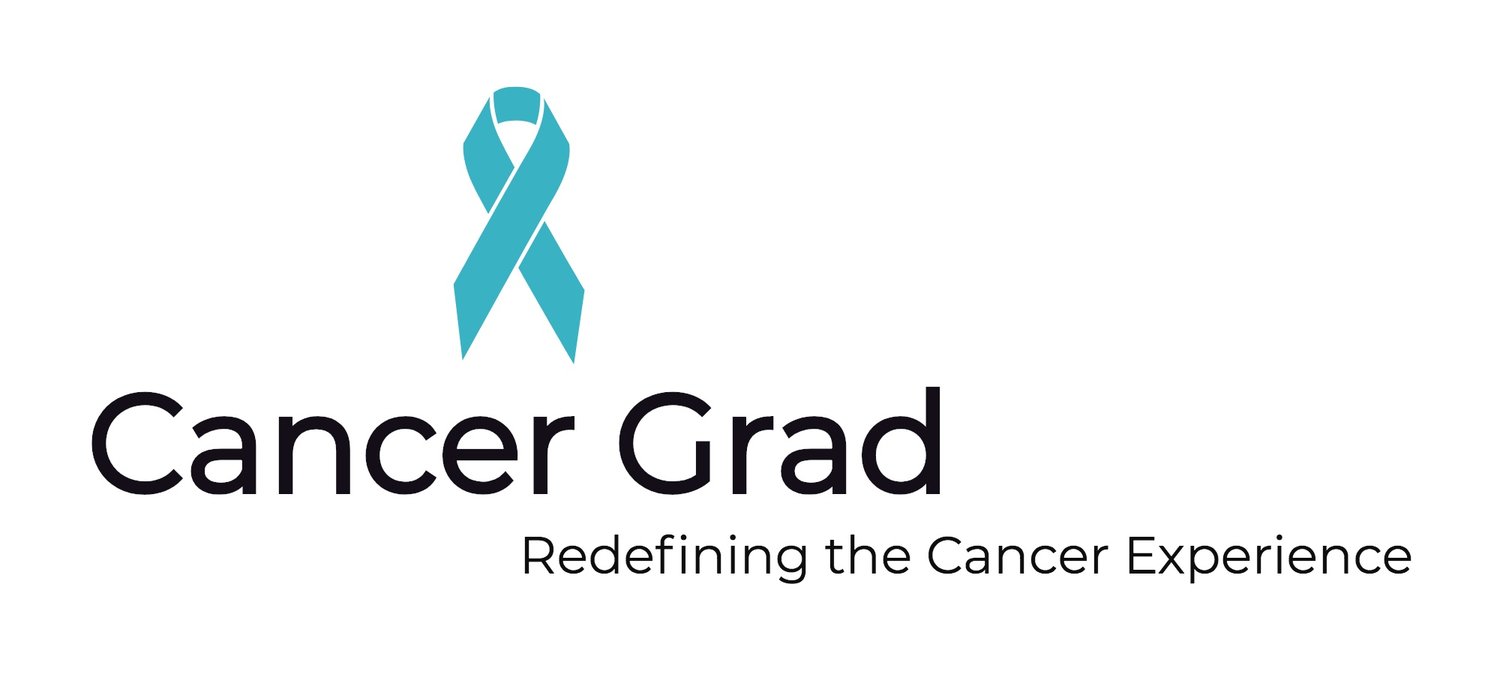Cancer Coaching Wisdom Wednesday Continued with Elizabeth Sherwood http://www.elizabethsherwood.com/ More mentioned links! https://www.youngsurvival.org/ http://firstdescents.org/ http://stupidcancer.org/
Posted by Cancer Grad on Wednesday, March 29, 2017
The lovely and knowledgeable Elizabeth Sherwood agreed to let us interview her on our Facebook Live #Wisdom Wednesday this past week (see the video above). She graciously passed on to us some basic information about groups that might be helpful to the cancer community. Here's what she has to say:
"1) Groups with "psycho-educational focus"- These are groups that help with advocating for your health care needs post-treatment and often combine this with education re: importance of physical activity, nutritional choices, stress and coping, advocating for your follow up, dealing with psycho-social issues in relationships, work, etc and psychological issues. Often they are a set number of classes/meetings. One example is "Cancer Transitions", a program developed by the Cancer Support Community about 10 years ago and is now shared by many cancer centers- usually free. There are other models that may have different names but with this type of focus. You might be able to find information by calling a resource center at a cancer hospital, asking your oncologist and looking for flyers. Oregon used to have one that was AYA specific but most likely mixed group age wise. Usually they involve a facilitator and then guest speakers.
2) Support Groups- For young women with breast cancer YSC (Youth Survival Coalition) has links to groups across the country. These may be facilitated with an oncology professional and/or someone who has done some training with YSC. Stupid Cancer has "Meet Ups" that are not necessarily support groups but gatherings of other young adults.
I started a group with a former patient who approached her oncologist about getting a group going-so that is an option too if you are someone who would like to get something going in your area. She helped with the organizational part of the group and I helped with the space and facilitating.
Some people find the opportunity to learn from others and share with others helpful....others really do not like it. The difficulty when groups don't have a "facilitator" (or someone comfortable with group dynamics) is that if you have a person who is problematic, other folks can feel like the group isn't helpful, or is sort of out of control, or doesn't attend to their needs.
3) Psychotherapy Groups- Groups facilitated by a professional who have experience in group therapy. There are a variety but some that you might see are:
CBT - Cognitive Behavioral Therapy-short term, goal oriented, using practical approaches with goal of changing patterns of thinking and behaviors that lead to problems for the individual and how they feel.
Expressive Therapy -Expressive Arts therapy-art, music, drama, writing and movement, dance. The focus is on the process of creation within context of therapeutic approach-what comes up and how it can be processed.
ACT -Acceptance and Commitment Therapy-a form of CBT therapy that focuses on instead of trying to change difficult feelings and emotions (which may be counter productive) you work to adopt new, powerful alternatives like acceptance, mindfulness, values and committed action.
Meaning Centered Therapy-Taken from the work of Victor Frankl (therapist and holocaust survivor), this type of therapy involves therapeutic approaches designed to enhance meaning, spiritual well-being and quality of life...the creation of meaning is a primary force of human motivation.
Sometimes big cancer centers may run these groups or even have some clinical trials. You might look to find these groups in your community (they may not necessarily be cancer specific, but still might be very helpful).
4) Retreats- A form or type of individual and group therapy (depending on the set up and your involvement in self-reflection) set around personal issues and group interchange. Several retreat opportunities are free, provide restful places in nature, with people who want to share their experience and enjoy the opportunity to "get away from it all" for a bit.
5) Nature/Outdoor Programs- Like retreats, these can be very transformative depending on where you are, and your desire to reflect. For many folks it may be the first time they are in a group with the entire crew being other young adults that have experienced cancer. There is an outdoor component which is often glorious nature with all of your food needs attended to with love and care. The sport may include allowing yourself to challenge yourself, your fears acknowledging that you have been through some pretty scary things already. Ideally lots of laughter too. Evenings may provide for a time of group reflection as well as personal reflection and sharing. Some of these programs include First Descents, Athletes for Cancer, True North Treks ."
Thanks for passing on this helpful information, Elizabeth!

